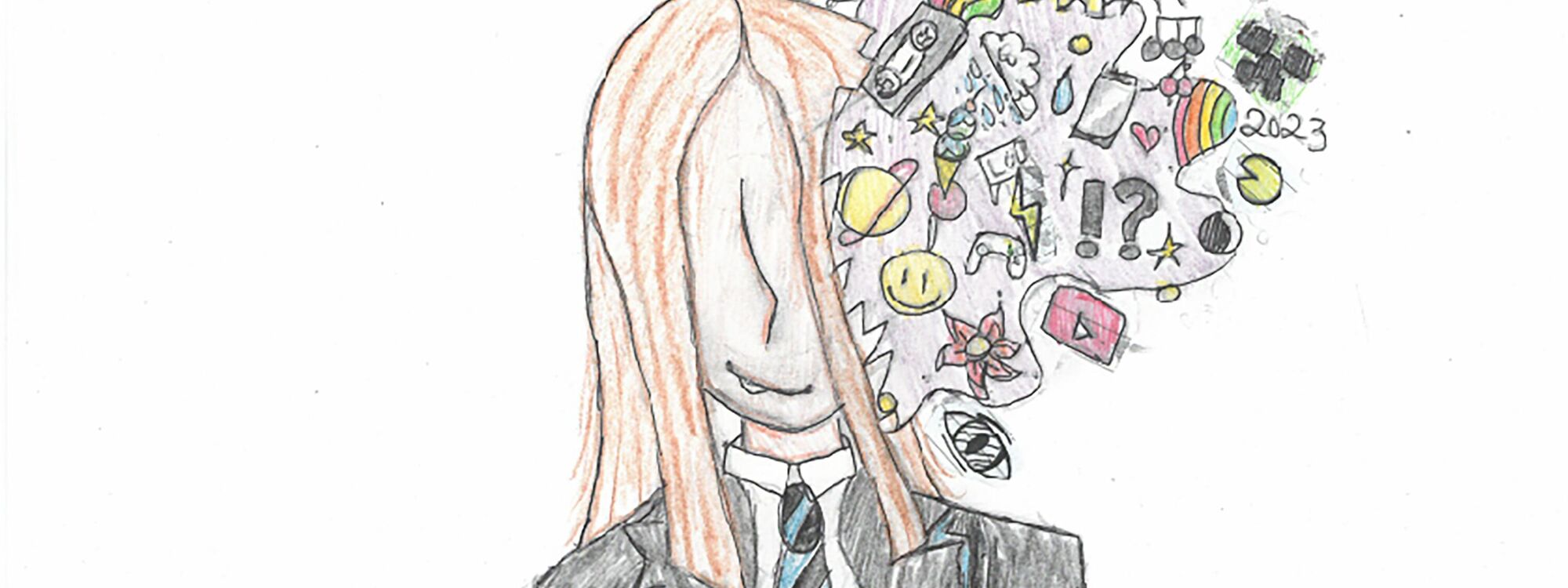- Home
- Parents
- Mental Health
Mental Health
MENTAL HEALTH AND STUDENT SUPPORT
It’s okay to ask for help. One in six children, aged 5 to 16 were identified as having a probable mental health problem in July 2020, a huge increase from one in nine in 2017. That’s five children in every classroom! You are not alone.
- NHS Digital (2020): ‘Mental Health of Children and Young People in England’, prevalence survey. Available at: https://digital.nhs.uk/data-and-information/publications/statistical/mental-health-of-children-and-young-people-in-england/2020-wave-1-follow-up
Cecil Jones Academy has 2 mental health first aiders and a qualified Senior Mental Health Lead, Mrs R Langdon (AHT, DDSL); Mrs Chapman (Ast-HT DSL) and Mrs Wardle (YCT).
- https://www.kooth.com/ – Your online mental wellbeing community. Free, safe and anonymous support. Helpful articles, Kooth community, daily feelings journal and chat to the helpful team.
http://www.yctsupport.com/aboutus – YCT is a counselling and therapeutic support charity. We specialise in supporting children and young people aged 5 – 25 years, their families and the professionals who work with them. - Rethink Mental Illness’ main website – Information on mental health for people with experience of mental illness and the people who care for them.
- Samaritans – Offers a 24-hour helpline for anyone who is distressed or experiencing emotional problems. Telephone: 08457 90 90 90 Email: jo@samaritans.org
- Support Line offers confidential support and advice by telephone, email and post. Provides an A-Z listing of free fact sheets about the problems and difficult issues many young people can face, Telephone: 01708 765 200 Email: info@suportline.org.uk
- The Site provides a wide range of information about issues that affect young people. The Health and wellbeing sections provide an extensive range of factsheets about the mental health disorders and problems.
- Youth2Youth – A website and helpline run by young people which offers advice and information on all aspects of emotional wellbeing for young people.
- https://youngminds.org.uk/ – A one stop shop for all mental health needs. There is specific advice for parents.
- www.themix.org.uk – The Mix is the UK’s leading support service for young people. They are here to help you take on any challenge you’re facing – from mental health to money, from homelessness to finding a job, from break-ups to drugs. Talk to them via online, social or their free, confidential helpline.
- http://teenmentalhealth.org/ – They offer nearly all resources, reports, and publications free of charge. They are categorized by who could use them, what they represent and the modality they present in. Explore all of the resources to better understand a holistic perspective with a singular focus on bettering the lives of our youth.
- https://www.headstogether.org.uk/ – Heads Together is a mental health initiative spearheaded by The Duke and Duchess of Cambridge and Prince Harry, which combines a campaign to tackle stigma and change the conversation on mental health with fundraising for a series of innovative new mental health services.
- http://www.rcpsych.ac.uk/healthadvice/problemsdisorders/copingafteratraumaticevent.aspx – This website is aimed at helping people cope after a traumatic event.
- http://www.gosh.nhs.uk/medical-information-0/procedures-and-treatments/supporting-children-after-frightening-event – Children and young people sometimes witness things that they find very scary or stressful, for example, car accidents or fights. Their reactions to the event may vary. This website is designed to support children after a frightening event.
- https://www.nspcc.org.uk/what-we-do/news-opinion/supporting-children-worried-about-terrorism/ – This website is aimed at supporting children that are worried about terrorism. In addition, Police have issued new guidance to young people about what to do in the event of a terror attack. If you’re concerned about how a child is feeling following recent attacks or would like advice on how to talk to your children about terrorism, you can call the NSPCC helpline on 0808 800 5000.
5 WAYS TO WELL-BEING (Adapted from Youngminds.org.uk)
Meet a friend – spending time with a friend can help you take your mind off whatever is making you feel stressed. Whether that’s just sending a text, going for a walk together or having a phone call, chatting to someone you trust and talking things over can help you wind down.
Go for a walk – going for a walk after school, or at the weekend can help you to take a break and find time to reflect on how you are feeling.
Find a hobby – a hobby away from school can help you switch off and take time to do something you enjoy. It can be anything, but common hobbies include running, reading, drawing and writing.
Be mindful – be more aware of the present moment, including your thoughts and feelings, your body and the world around you. Some people call this awareness “mindfulness”. It can help you change the way you approach challenges and see them from a different point of view. Find out more and how you can practise mindfulness from the youngminds.org.uk blog ‘How I practice mindfulness to improve my mental health’.
Taking time away from screens – sometimes, it can be hard to switch off when you get a lot of notifications, messages and alerts on your phone. When you are taking time out, try to relax by reading a book, writing in your journal or listening to music.



